After over a decade of active involvement in the Association, initially as a founding Director and latterly as National Officer, today marks my departure from the leadership team as I retire to the back benches!
It has been a genuine privilege to have served, supported and stood alongside colleagues in an effort to sustain and progress our field of practice throughout the last decade. I think it will be some time before I have fully reflected on this experience as so much has happened throughout a tumultuous decade for our sector and, not least, for the young people and communities that are the focus of our attention.
It is my intention to work towards a longer read to be published at a later date. But for now, here are three parting thoughts on our distance travelled as I set up ‘out of office’ one last time:
Better together - recognising everyone engaged in our community of practice
The Association was formed in 2010 from the loose affiliation of the forerunning Training Agencies Group (TAG) that had served as an informal group of interested educators and academics for over 20 years. In 2010 there were between 40-50 live contacts on our Jiscmail circulation list. Meetings and communications were often haphazard but always stimulating and challenging. A small group recognised the potential to draw together all the academics engaged in youth and community work education across a growing number of HE Institutions. The formation of the Association was the impetus to include all HE lecturers and educators engaged in programmes across the UK. Active recruitment and engagement has grown the membership over a decade to more than 275 academics, educators and linked agencies from across the UK and now include some of our international partners. This ‘shift’ has moved us from a small peer group to a recognisable community of practice that I believe makes us ‘better together’ as we seek to work inclusively while continuing to recognise our differences and diversity.
Stronger together - recognising that we can have a collective voice:
The Association has been able to draw on the individual and collective voices of members throughout a decade of challenge and change. We initiated two national ‘tours’ that drew members and interested agencies in to the discussion about the futures, policies and practices that represent youth and community work (and informed our strategic direction); our members have authored, refreshed and renewed the HE subject benchmarks for youth and community work; we have sustained an active voice in the validation and standards of HE qualifications; we have responded to multiple national consultations on youth sector policy, made representation at parliamentary inquiries and contributed to HM Government departmental reviews. All of this has been possible because we have presented a collective voice, drawing on the expertise of individual members and consulting with colleagues across the membership. If our subject and practice discipline is going survive, then I believe we must continue to speak out of the strength that comes from togetherness. This demands increased participation and solidarity across the membership as we face the challenges that this next decade will undoubtedly present young people and their communities.
Maturer together - recognising that we are responsible for our subject discipline
The Association has, throughout this decade, grown as a conduit for colleagues to share knowledge, expertise and achievement with a sense of collective celebration. It has been a criticism of the youth and community sector in the past that it lacked a coherent body of knowledge and a reputable research base (and, at times, had been guilty of individual and/or destructive crusades!). Many of our members have addressed this through publishing a range of foundational textbooks, contemporary journals and compelling research reports. There is an increasing co-operation between members in co-authoring publications, research collaborations and multi-agency projects that move us beyond a few vocal individuals towards a broader body of knowledge representative of our community of practice. These activities and outputs demonstrate that we are maturer together, however, we are still maturing as a ‘late-blooming’ discipline! There is a need to build on and curate this body of knowledge so that it continues to strengthen the landscape for the subject discipline.
None of this would have been possible without the good will and collaboration of so many colleagues who have made space in their personal and professional lives to come together and build our community of practice. For me, it has demonstrated what is possible when people join together with a collective vision of ‘what could be’ and ‘what needs to be done’. There have, undoubtedly, been some bumps and curveballs to negotiate along the way but I hope we have emerged stronger and braver for the road that lies ahead.
So, a final thank you from me to fellow members of the Association and especially those that have worked closely with me throughout the past decade. As we look forwards, I hope we can continue to focus on what draws us together and contributes to the growing of our community of practice.
Paul Fenton, 31st August 2021

